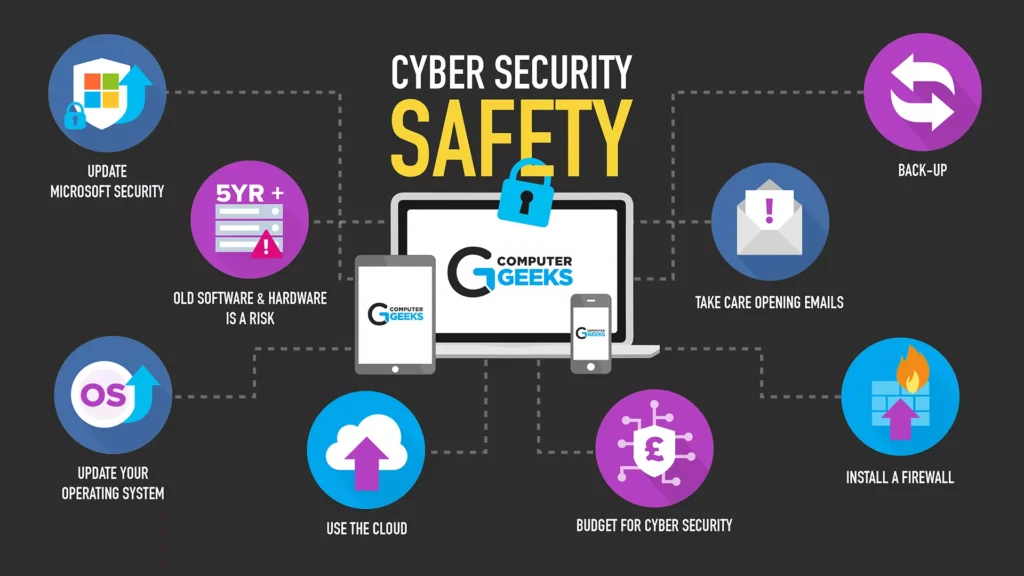In today’s digital world, data is the backbone of every organization. It includes important documents, financial records, customer information, and intellectual property. Losing such data can be catastrophic for businesses, causing serious financial and reputational damage. This is where file backup and recovery come into play.
File backup is copying and archiving information from one location to another to ensure its safekeeping. Recovery, on the other hand, refers to retrieving lost or corrupted data. Both are essential in protecting an organization’s data, ensuring it is secure, accessible, and recoverable in any disaster. The importance of file backup and recovery cannot be overstated. In this article, you will learn just that:

Source: huffpost.com
-
Promotes Organization & Productivity
The best file manager software is one that you can integrate into Windows File Explorer while also maintaining tagging, easy navigation, searches, categorization, and structural integrity of many files and folders. The right software can help you save time and effort by integrating file types and formats. It also ensures that the files remain the same, maintaining the same name, location, and content regardless of the tags used.
Reliable software can harbor structural integrity and organization by personalizing it to meet your business requirements. It can also help you track changes to the file and can be integrated into several applications. You can combine, import, and export tags from external sources with the right software.
-
Protection Against Data Loss
With the right backup strategy, organizations can ensure they have multiple copies of information stored in different locations, making them more resilient to disasters.
In the event of a main data failure, the backup’s goal is to make a copy of the data that can be retrieved. Primary data failures may come from hardware or software issues, information corruption, or a human error like a malicious attack (virus or malware), data deletion accident, or another human-caused event. To aid a company in recovering from an unexpected catastrophe, backup copies make it possible to restore information to a previous point.
To safeguard against total information loss or corruption, saving a copy of the data on a different medium is essential. This different media could be something as basic as an external drive or USB stick or something more substantial like a disc, cloud, or record system. The alternative medium may be situated nearby the primary data or farther away. The probability of weather-related events may justify copies of the information at distant locations.
The amount of data lost between backups should be kept to a minimum for the best outcomes; hence backup copies should be generated consistently and frequently—data loss when recovering from a backup increases in proportion to the interval between backup copies.
If you’d like to try another method, there is air gap backup which is a unique form to avoid data loss and has been around for some time. With this technique, a copy of your data is unavailable online, disconnected, and offline.

Source: insperity.com
-
Improved Disaster Recovery
Disasters such as fires, floods, earthquakes, or cyber-attacks can cripple a business, causing significant damage and downtime. Without an effective backup and recovery system, it can take an organization a long time to recover from such disasters, resulting in lost revenue and productivity.
A backup and recovery system ensures businesses can quickly recover critical information during a disaster. This means that they can resume normal operations sooner, minimizing the impact of the disaster on their operations.
-
Legal And Compliance Requirements
Many industries have legal and compliance requirements regarding information storage and retention. For instance, the Health Insurance Portability and Accountability Act (HIPAA) imposes stringent rules on the healthcare sector and mandates patient data storage. Serious legal and financial repercussions may follow failure to comply with these regulations.
Businesses must have a backup and recovery system that conforms to these rules. They are shielded from potential legal action and financial fines by ensuring they comply with all legal and regulatory obligations.

Source: geeks.co.uk
-
Protection Against Cyber-Attacks
Where there is digitalization, there are thefts and attacks. Cyberattacks are one of the most growing concerns for organizations worldwide, and an effective FMS can save tons of lost data and money. Businesses dealing with highly confidential information, such as social security numbers, financial information, intellectual properties, and more, are highly susceptible to malicious attacks that can cause great reputation damage and loss of quality of life for consumers.
It may also result in downtimes and significant financial losses. Backup and recovery systems can perfectly dodge this loss by ensuring every piece of data is recoverable and safe in an untouchable zone called cloud servers.
-
Competitive Advantage
Having a solid backup and recovery strategy can give organizations a competitive edge in today’s fast-paced commercial world. Businesses can swiftly recover from calamities and save downtime by guaranteeing their data is safely stored and accessible, which can help them stay a step ahead of the competition. Customers expect businesses to secure their personal information and data, which can increase consumer satisfaction.

-
Cost Savings
While purchasing a restore and backup solution may seem excessive initially, doing so can cost firms a tonne of money. Organizations may spend a lot of money trying to recover lost data, fixing broken systems, and dealing with legal difficulties due to data loss. Businesses can avoid these expenses and save millions of dollars in the event of a disaster or cyberattack by investing in a backup and recovery strategy.
-
Peace Of Mind
Having a backup and recovery mechanism in place also gives organizations peace of mind. Business owners and IT personnel may feel less stressed and anxious if they know crucial data is secure and recoverable in the event of a disaster or cyberattack. It enables them to concentrate on other crucial responsibilities, including expanding their company or enhancing their goods and services.
For an organization’s information to be protected, file backup and recovery are crucial. It guarantees that crucial data is secure, reachable, and recoverable in the event of a disaster or cyberattack. Additionally, it enhances disaster recovery, gives organizations peace of mind, and aids in meeting regulatory and compliance needs.
Conclusion
Organizations that need an effective backup and recovery system risk losing valuable information, which can seriously affect their operations and reputation. Therefore, investing in a reliable backup and recovery solution is critical for businesses of all sizes. It protects against data loss and ensures businesses can quickly recover from disasters and comply with legal requirements. By implementing a backup and recovery system, organizations can have peace of mind, knowing that their critical information is safe and recoverable in any eventuality.



